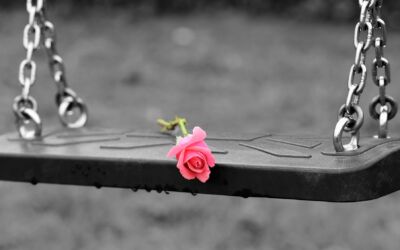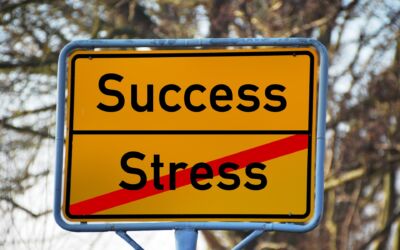At our foundation, we humans are inherently social creatures. We have long existed in packs or groups. That goes back to the beginning of our species, when we needed to coexist just to survive. That grouping instinct has continued regardless of how modern our world has become and how much easier it is to live on our own than even 100-200 years ago. That perpetuation has also led to findings of a strong link between relationships and mental health.
How do relationships affect mental health? We know that the link is there, and we know that this link can create either a positive or a negative situation. We also know that in general, fostering healthy relationships is going to lead to a happier, more fulfilling life. It’s important for us to feel connected to someone, to something… but it’s also easier said than done.
We’re going to continue our series on mental health self-care with a look at the link between relationships and mental health. We’ll also dig into some ideas for helping people nurture strong and supportive relationships that will help them through the tough times. Like anything else, what you put into your relationships is directly correlated to what you get out of them.
Relationships and Mental Health: It’s About Social Connectedness
When we talk about the link between relationships and mental health, we’re not just talking about those of a romantic nature. Instead, we’re talking about every type of relationship a person can experience. All of them make up what a person experiences in his or her dealings with others. Common examples of the types of relationships that can affect mental health include:
- Family
- Friends
- Coworkers
- Community members
- Neighbors
All of these people form what is basically our world. All of them are also relevant to the link between relationships and mental health. Fortunately or unfortunately, depending on your perspective, we can choose some of the people from the list above but not others. We can also choose to eliminate some of the people on the list above from our daily lives, but not necessarily others. All of that matters.
In its publication regarding relationships and mental health, the United States Centers for Disease Control and Prevention, or the CDC, talks about social connectedness. The CDC defines social connectedness with several characteristics. A few of them include:
- The number, variety, and types of relationships a person has.
- Having meaningful and regular social exchanges.
- Sense of support from friends, families, and others in the community.
- Sense of belonging.
- Having close bonds with others.
- Feeling loved, cared for, valued, and appreciated by others.
Overall, the CDC states that social connectedness affects not only mental, but also physical health, and that’s why it’s so important to make the most of that part of life.
Relationships and Mental Health: Friends Matter
The American Psychological Association published an article last year detailing the importance of friends in a person’s life. The article plainly quotes studies that revealed that high-quality friendships that provide support and companionship can help to protect people from developing anxiety and depression.
Conversely, people who had no real friends were found to be at much greater risk of premature death. One analysis found the risk associated with no real social connectedness to be greater than smoking 20 cigarettes a day.
All this means that having real, stable and safe relationships provides a person with someone – or even multiple people – to turn to as a buffer when facing negative circumstances. Someone with connectedness feels insulated from the world around them to a degree, and that’s vitally important when it comes to protecting mental health.
Perhaps the most daunting aspect of the article is that since 2012, when handheld devices and cellphones started to become uber-prevalent along with social media, marked the beginning of the rise of social disconnectedness on a grander scale. A few years later, the COVID-19 pandemic exacerbated all of those problems, and ultimately, new apps and norms have contributed to increasing isolation by humans.
We are not as social as we used to be, and that could prove to be a big problem soon given the link between relationships and mental health.
Relationships and Mental Health: Ideas to Create a Positive Link
As we go through life, we all get to know a lot of people, whether we are introverts or the most outgoing people imaginable. Given this reality, we’re all bound to cross paths with people we really like and with those we don’t. Therefore, in order to protect our mental health as much as possible, we should all consider taking a few steps towards balance, especially with those who we may not like but who we cannot avoid having in our lives.
Below are a few of those ideas.
1. Be Active
Building and maintaining healthy relationships requires two people to engage actively. In order to maximize your benefits, don’t wait for people to reach out to you – contact them regularly and share your well wishes and thoughts. It’ll have a positive impact on the number of positive contacts you have coming your way.
2. Protect Your Boundaries
Regardless of whether you are dealing with someone who is a friend, coworker or neighbor, you’re going to be asked favors and the like from time to time. While it’s always nice to accommodate, be careful not to agree so often that you suddenly find yourself being taken advantage of. That’ll lead to hard feelings and a negative impact on your mental health.
3. Minimize Negative Interactions
The more we interact with people, the more likely it is that we will at some point wind up in a conflict on some level. While that’s largely unavoidable, what is avoidable is perpetuating those conflicts such that they blow up into something unmanageable. Work to end conflicts without giving away the respect you are due, but if that doesn’t work, then consider the next step.
4. Eliminate the Negative Influencers
Everyone has that one friend or relative that, if they were honest with themselves, they would not continue to spend time with regularly. Perhaps they share a past, or they share a family relationship or even a professional interest. Regardless, you need to be honest with yourself and limit if not eliminate contact with those who lead you to feel bad about yourself, the world or anything that leads you to a dark and gloomy place. It’s simply not worth it.
5. Take Honest Stock of Yourself
While it’s good to spend some time alone, enjoying the quiet, too much of it can be harmful as well. Every so often, take some time to evaluate your relationships and how you are handling them. Are you contributing enough? Are you spending enough time talking to people in-person? Ask yourself these questions.
How SoCal Empowered Can Help
If you find that the link between relationships and mental health is not a positive one for you, then consider some of the ideas above. If you find yourself or a loved one struggling well beyond the point where a few minor changes will make a big difference, then you need to give us a call.
Our team of Orange County mental health professionals will work with you to find the right solution for your situation. If that involves a stay with us, we will recommend that and deal with your insurance company directly. If another outlet makes the most sense, we’ll help connect you to it.
It all starts with a call, so contact us today to work towards regaining the health and happiness you deserve.




